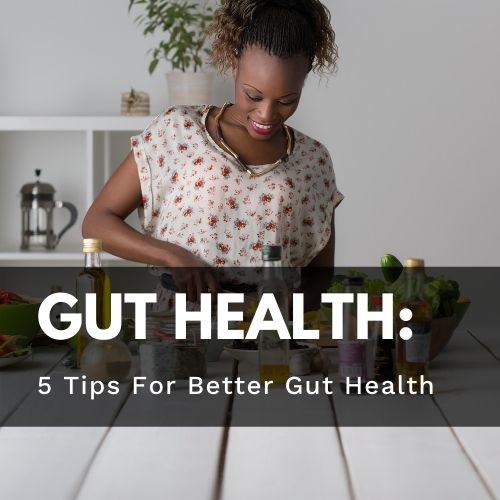Your Cart is Empty
COLLECTIONS:
SPECIAL OFFERS:
LEARN:

What You Should Know About Fiber Supplements
January 27, 2021 4 min read
Fiber is a dietary need for every human. It is necessary for optimal health and wellness. That being said, we tend to not get enough of it.
Because it’s just fiber.
It’s boring.
But could increasing your fiber intake help to bring a positive effect on your overall health? You betcha!
While getting enough roughage through food is ideal, sometimes choosing to use a fiber supplement is an easiest choice.
Below, we’ll detail why you need fiber, the different types of fiber, how much fiber you should take daily, and what goes into the best fiber supplements.

Types of Fiber
Dietary fiber is the indigestible part of plant foods that makes stool soft and thus enables smooth bowel movements, prevents occasional constipation, and promotes healthy gastrointestinal (GI) microflora balance.
There a two different types, soluble and insoluble. Each type has its own benefits and characteristics. Our bodies need both to operate at full functionality. Getting too little of either type can result in unpleasant outcomes.
Soluble Fiber
Soluble fiber absorbs water as it passes through your digestive system. This helps to bulk up your stool, and reduces the possibility of thin stool. Soluble fiber is often included in fiber supplements as it helps with maintaining normal digestive system function.
Foods that are great sources of soluble fiber include:
- Psyllium husk
- Fruit (such as dried figs)
- Oatmeal
- and Flaxseeds

Insoluble Fiber
Insoluble fiber is made up of foods that don’t dissolve in water. This usually includes foods with a hard exterior shell (think of foods like beans and lentils).
Insoluble fiber is beneficial because it helps to move bulk through your intestines. In a sense, it keeps things moving through your body and helps to keep you regular.
If you struggle with occasional constipation, adding more insoluble fiber to your diet can help to get things moving. Look for a good amount of insoluble fiber in any fiber supplements that you take. This will help to support bowel regularity.
Food with high insoluble fiber content include:
•Wheat Bran
•Legumes (such as kidney and pinto beans)
•Lentils
•Vegetables (such as turnips, okra, and peas)

How Much Fiber Should I Take Per Day?
The amount of fiber that you need varies depending on age and gender. As a general overview, women need 25 grams of fiber per day. Men need 38 grams of fiber per day. The average American gets 15 grams of fiber per day, a number that is far from optimal.
To look up a more specific fiber daily intake chart, with age breakdowns, please visit this helpful website.
You should aim for a soluble fiber to insoluble fiber ratio of 1:4. This ratio provides the perfect amount of each type of fiber, which will help you with stool bulk and elimination.
Why You Need a Fiber Supplement
For those that experience occasional constipation, taking a daily fiber supplement is a good option. It can be hard to get enough fiber through diet alone.
This is especially difficult when you factor in that the US Dietary Guidelines suggest that we are to eat between 5 and 13 servings of fruits and vegetables, per day!
Taking a fiber supplement is an easy way to ensure that your body obtains its daily fiber requirements. This will help to keep you regular, and will help your body to maintain optimal health.

The Best Fiber Supplement
The best fiber supplement should include a combination of both soluble fiber and insoluble fiber. A combination of both is needed to help you keep your system moving and to provide bulk to your stool.
As mentioned earlier, a 1:4 (soluble:insoluble) ratio is ideal, though a fiber supplement higher in soluble fiber is best, as it tends to be more difficult to get soluble fiber through diet alone.
When looking for the best fiber supplement, make sure that it is plant based. Also, for those that are sensitive to gluten, make sure you choose a gluten free fiber supplement. Many fiber supplements on the market contain gluten-laden ingredients. A good gluten free fiber supplement should contain ingredients like psyllium husk and flax seed.
Buy Fiber Supplements
Look for a natural fiber supplement that contains a balanced ratio of soluble and insoluble fiber. This will help with occasional constipation and in maintaining long term bowel regularity and health.
Fiber Food is a delicious daily fiber supplement. The main ingredient is psyllium, it includes both both psyllium seeds and psyllium husks. Psyllium is one of the most widely used fibers in natural bulk laxatives; both the psyllium seeds and husks used in Fiber Food are 100% organic and free of the contaminants, such as gluten, that are often found in other sources of psyllium.
In addition to psyllium, Fiber Food includes food based soluble fiber from apples, fig and prune. It is important to keep in mind that insoluble fiber does not dissolve into a liquid. This means that you will want to mix it with plenty of liquid and drink your fiber supplement quickly to ensure it can be swallowed without complication.
Fiber Food contains 10 grams of dietary fiber per serving and has a pleasant taste. It is the perfect fiber supplement for daily, or occasional use.

______________________________________________________________________________

Daniel Powers is a health and fitness enthusiast with a background in the supplement industry. Outside of work, Daniel enjoys Crossfit, reading large books, and drinking coffee.
Leave a comment
Comments will be approved before showing up.
Also in Health
Subscribe
Sign up to get the latest on sales, new releases and more …
Join the Utzy Naturals Club!
Sign up and get the latest on sales, new releases, and more...









